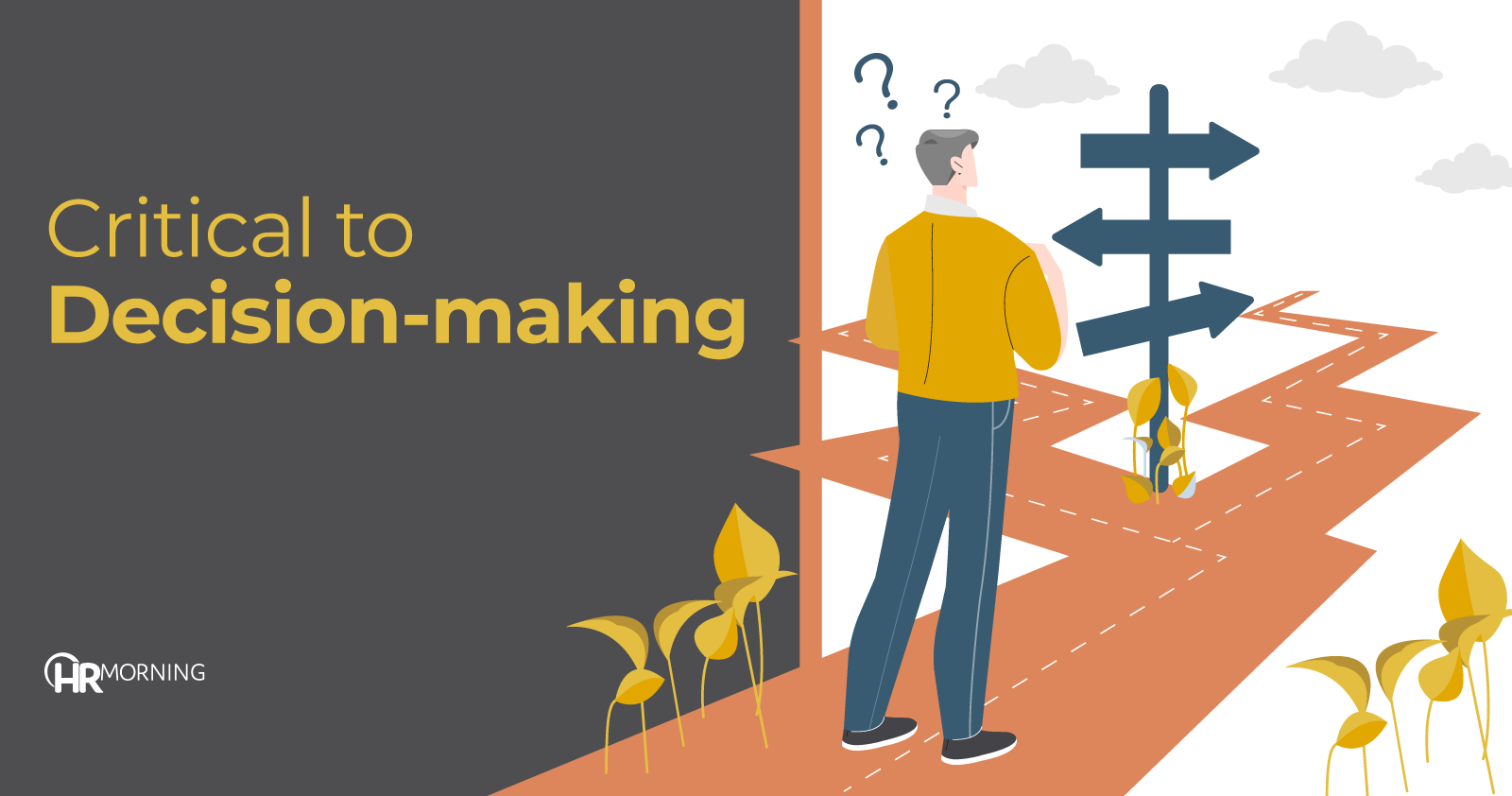Should you read this now or later? That’s just one more decision in the 35,000 you’ll make today.
The next decision could be much more difficult.
Fortunately, the bulk of your next decisions will be mundane – pick-up or delivery? Now or later? Cake or not?
Still most managers also face plenty of major decisions – Agree or negotiate? Terminate or keep? Step in or let him learn from a mistake?
Is the next decision tough?
Tough decisions like these can trip up any manager. In fact, just 20% of leaders feel their organization excels at decision-making, according McKinsey research. When the top doesn’t set the example, that makes it even more difficult for front-line leaders to excel at decision-making.
“A leader has to evaluate whether he or she has enough information to move forward,” says Eric McNulty, director of research at the National Preparedness Leadership Initiative and author of You’re It. “Decide too soon and resources may be committed in the wrong direction. Wait too long and the consequences could be disastrous.”
To avoid costly errors, productivity breakdowns — and even lawsuits — when making important decisions, follow these guidelines:
Know the causes
Knowing what often leads to poor decisions in a business environment can help managers avoid them.
Leadership Initiative researchers found these factors lead to most poor decisions:
- Lack of connection. Managers sometimes face an issue in which they don’t fully understand the impact their decision can have on the entire organization and employees. So they decide based only on how it impacts their department or direct reports.
- Time pressures. Critical decisions often come with a short deadline that forces decisions before managers know all the important information. They’re forced — either by the powers that be or their own conscience — to make decisions sooner that they should or have to be made.
- Changing standards. Sometimes managers make a decision based on standards they know and follow. But a different standard had been established in the meantime because of fluid circumstances – and the decision is inconsistent with that.
Timing is critical
Effective decision-making depends deeply on when and how managers do it.
The amount of time spent on deciding is critical to good decision-making. In some cases, a quick decision is the best bet. In other cases, managers want to spend more time gathering information and thinking it through.
McNulty’s 4R Test can help you figure out how long to spend on making a decision. Consider:
- Regret. What regrets will you have if your decision is wrong? The smaller the regrets, the sooner you can act.
- Repeal. How difficult is it to repeal the decision? The easier it is, the sooner you can decide.
- Repercussions. Who else is affected? Take into account all the stakeholders. The more there are, the longer you want to ponder a decision.
- Resilience. If the wrong decision is made, how hard will it be to bounce back to normal operations and relations? Be more diligent if recovery time is longer.
Balance the situation
When finally making the decision itself, managers want to:
- Get the truth. Talk to people who don’t tell you what you want to hear. Encourage straight talk by making it clear all the time that you want unvarnished feedback regularly. And when you get that feedback, use it, so others know you are sincere.
- Align values. Make sure the decision stands true to your personal and organizational values. For instance, if trustworthiness is a core company value, consider how a decision will affect public or employee perception.
- Sleep, eat. Research shows it’s more difficult to make good decisions when you’re tired and hungry. This isn’t just your mother’s advice: When facing tough decisions, you really should “Sleep on it.” And you don’t want to make decisions when you’re hangry, either.



